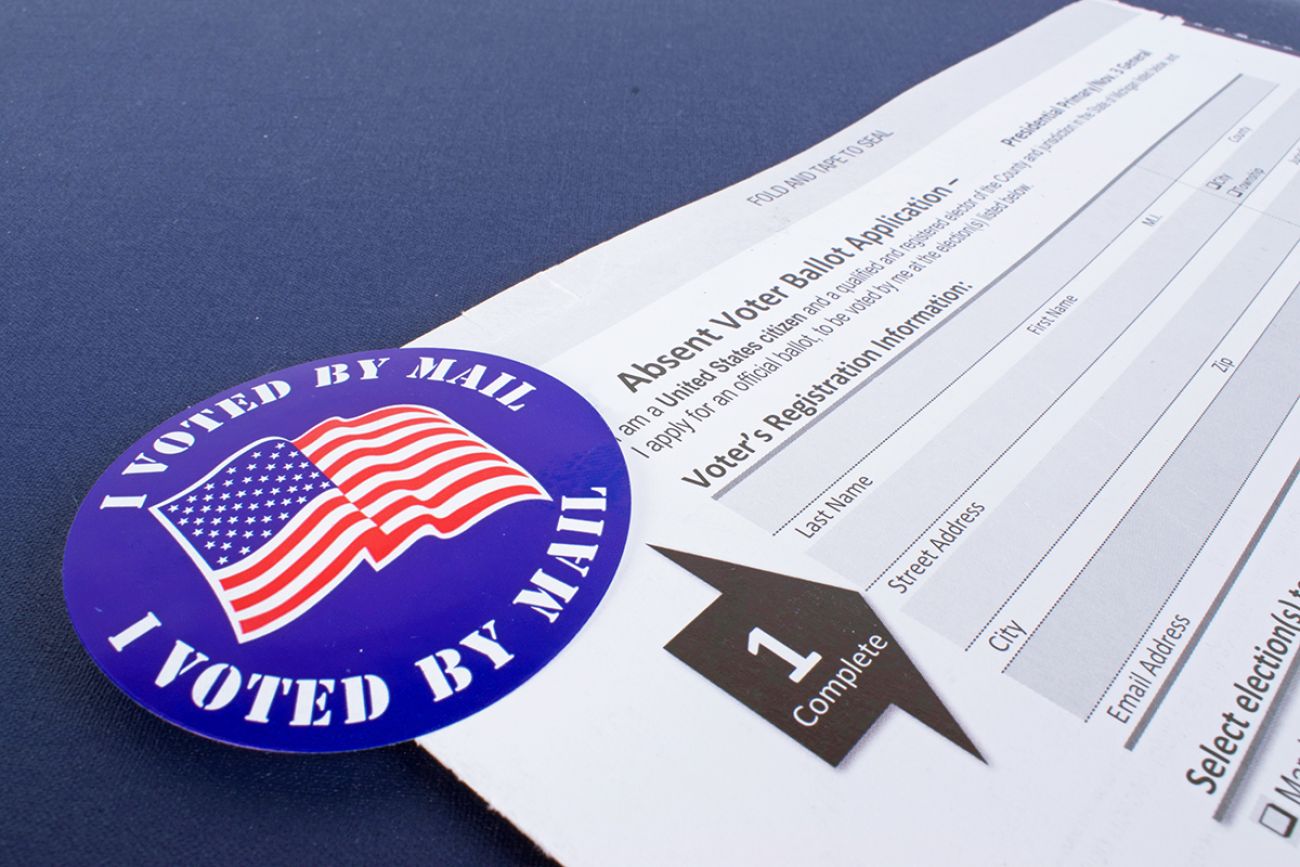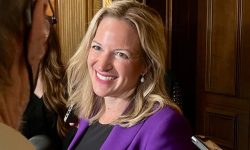Michigan absentee applications nearly double from 2018: 1.2 million so far

- Nearly 1.2 million voters have submitted absentee ballot applications, up from 588,909 at the same period in the 2018 midterms
- It’s the first statewide midterm election where no-reason absentee voting is an option in Michigan
- As of Tuesday, 398,756 voters have cast their ballots already
In 2018, Michigan residents approved no-reason absentee voting. Early returns this year suggest it’s here to stay.
As of Tuesday, more than 1 million voters had applied for absentee ballot applications, up from about 550,000 in the same period before the 2018 primary, according to the Secretary of State.
So far, 398,756 primary ballots have been returned, up 53 percent from 260,017 ballots that had been cast two weeks prior to the 2018 primary, before no-reason absentee voting went into effect .
Related:
- Michigan’s next big election fight: absentee ballot signatures
- As absentee voting surges, Michigan Republicans seek to bar online applications
It’s a trend that appears to be playing out statewide, particularly in Democratic-leaning areas, state data shows.
In liberal Ann Arbor, more than 16,000 residents have requested absentee ballots so far, up from 5,044 at this point in 2018. Of those, 4,799 have been returned already, compared to 1,565 absentee ballot returns in the last statewide midterm primary.
Absentee applications are nearly double in Grand Rapids (18,000 from 7,500 with 7,000 returns), which went big for Democratic President Joe Biden in 2020.
Trump raised doubts about absentee ballots, and applications are increasing at slower rates in Macomb County communities like Sterling Heights that favored him. In nearby Clinton Township, which went for Biden by a whisker in 2020, about 5,900 voters have returned ballots at this point, up from roughly 5,000 two weeks out from the 2018 primary.
How to register and cast your ballot
Registered voters can request an absentee ballot online or at their local clerk’s office.
Once an absentee ballot is delivered, voters can fill it out and either mail it back or drop it off at their local clerk’s office. Check the status of absentee ballots here. Those who have not yet mailed back ballots may want to hand-deliver it to the clerk's office to avoid postal delays.
Eligible residents can stop by their local clerk’s office to register to vote through 8 p.m. on Election Day.
In-person voting for the primary election is 7 a.m. to 8 p.m. Aug. 2.
But returns are down altogether in Detroit, which is perhaps the most solidly Democratic city in Michigan: While applications are up to 41,254 from 28,298 at this point in 2018, returns are down to 14,319 from 17,115 during the same period..
Typically, turnout in presidential election years is higher than midterm election cycles. And the August 2020 primary broke records despite a raging pandemic, in part because it was the first state primary after the implementation of no-reason absentee balloting.
More than 1.6 million absentee ballots were returned, 25 percent above the previous high, the 2016 presidential election.
In the 2020 general election — which traditionally has far higher turnout than primaries — about 3.2 million of the state’s 5,568,097 ballots were cast absentee.
What prompted the spike
Prior to 2019, absentee voting was limited to a handful of groups: people over 60, disabled residents, election workers and those who signed an affidavit attesting that they’d be out of town on Election Day.
That changed following the passage of a ballot initiative pushed by Promote the Vote, when anyone could request an absentee ballot application and either mail that ballot in or cast it in person ahead of the election.
In addition to expanding absentee voting options, the ballot language approved by voters in 2018 included automatic voter registration options, allowing voters to register to vote and cast a ballot up through Election Day and reinstating the straight-ticket voting option.
How 2020 played out
In 2020, 57 percent of the state’s 5,568,097 total votes were cast absentee, contributing to an all-time record voter turnout in Michigan.
Secretary of State Jocelyn Benson used $4.2 million in federal money to mail absentee ballot applications to every registered voter, a decision that was criticized by Republicans but upheld in court.
The department opted against repeating the practice in 2022, although some local municipalities opted to mail absentee ballot applications this cycle.
But absentee voting trends weren’t consistent across political affiliations. In both the primary and general elections in 2020, more Democrats opted to vote absentee than Republicans.
Possible future changes
Both Democrats and Republicans have sought in recent years to amend Michigan voting rules yet again, most recently in competing ballot initiative efforts.
The same group that backed the 2018 initiative, Promote the Vote, is behind a proposed 2022 constitutional initiative that would allow nine days of early voting, a statewide absentee ballot tracking system, continuing to allow registered voters without a state ID to vote by signing an affidavit and expanding absentee voter registration and ballot drop boxes.
State election officials are currently reviewing the signatures submitted by the group to determine whether it has enough valid signatures to qualify for the November ballot.
A separate proposed legislative initiative, Secure MI Vote, would require identification for in-person voting and absentee ballot applications and ban unsolicited absentee ballot applications, among other proposed changes.
The group is still collecting signatures and hopes to get a plan before the state Legislature to review.
See what new members are saying about why they donated to Bridge Michigan:
- “In order for this information to be accurate and unbiased it must be underwritten by its readers, not by special interests.” - Larry S.
- “Not many other media sources report on the topics Bridge does.” - Susan B.
- “Your journalism is outstanding and rare these days.” - Mark S.
If you want to ensure the future of nonpartisan, nonprofit Michigan journalism, please become a member today. You, too, will be asked why you donated and maybe we'll feature your quote next time!




